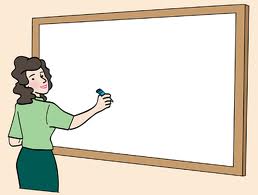Discovering your

When we train our teachers for Perform classes, one of the sections we spend the longest time working on is their voices. I'm not talking about their singing voices here; they are, after all, trained actors and singers and wouldn't get to the training stage if they didn't have a great instrument. What we work on is teaching them how to effectively use their voice to inspire and control children.
At Perform, we encourage our teachers to have two different types of voices for effective teaching: their energised, fun and inspiring voice for the majority of the time; and a low and firm no nonsense voice to use to ensure control when necessary.
The ?no nonsense' voice rarely makes an appearance but it is there should it be needed. And this isn't a shouty/screechy / aggressive voice by the way. It doesn't even have to be loud or raised - what's important is its tone. We have found that a low tone works best and that it has to be firm and clear. The important thing is that the children know that this voice means business. So it should only be used sparingly when necessary.
This is not a complex or original idea and I'm sure that, if you observed most excellent primary school teachers, you would find that they naturally use two voices. But despite its tried-and-tested simplicity and prevalence, some teachers find it hard to master. And I believe that teachers (and parents by the way) who haven't mastered this won't be teaching to the best of their abilities. Clarity is very important when teaching and children need to feel safe within set boundaries. The way in which you use your voice is the most important demonstration of the sort of statement, request or command you are making.
Having a "fun" and "firm" voice really works and not only as a useful aid for managing large groups of children. It's also very helpful for managing one or two, as I have learned with my own children.
If my son is messing around or doing something that he shouldn't be doing, simply saying his name in my "firm" voice is sometimes all that is required to make him stop. I never shout and I don't get angry. My vocal authority alone is sufficient to show him that I'm not happy and this usually manages to nip troublesome behaviour in the bud. The beauty of it is that you only have to say one phrase like "Excuse me" and the tone of your voice does all the work for you. So you don't need to repeat, nag or drone on - just lower your voice and let it speak for itself.
If this sounds a bit unlikely, have a go at the following exercise with your children. Next time they are misbehaving, say something like ?Stop that please? in your normal voice. Observe the response then lower the tone of your voice and say it again. See what a difference such a simple change makes. From my experience with my own and thousands of Perform children, I believe you will find it hugely effective.
Whether at home or at school, please let me know how you get on.










 Recent Posts
Recent Posts Recent Comments
Recent Comments
 Archives
Archives

Leave a comment